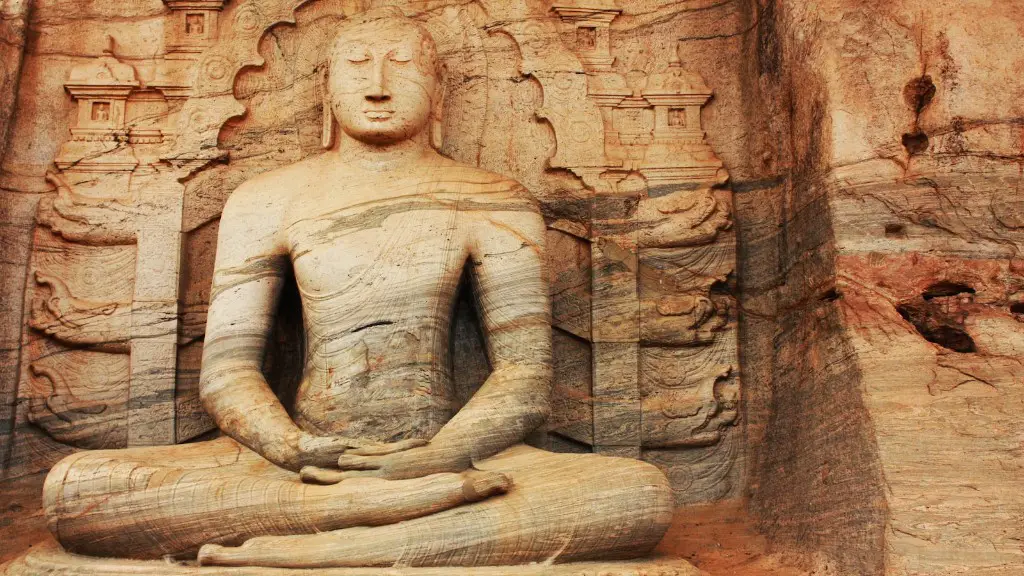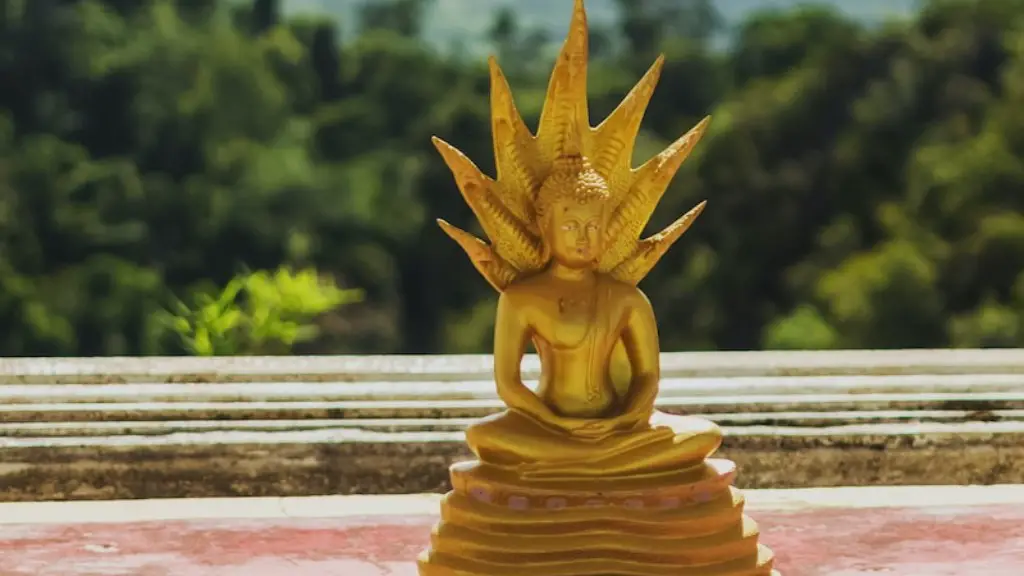Main topic: What Is The Women’s Role In Hinduism
Hinduism is one of the world’s oldest major religions, with its roots stretching back over 5,000 years. It’s an incredibly diverse faith that can be seen in different forms throughout India and around the world. The Women’s role in Hinduism is significant and often controversial. Hinduism is structured in a different way than other religions, viewing divinity as both female and male, and worshipping both Shiva, the god of destruction, and Parvati, the goddess of fertility. One of Hindu Goddesses is Lakshmi- the goddess of wealth, fortune and prosperity.
Hinduism also has a long history of recognizing women’s worth. In the ancient Hindu scripture, the Rig Veda, “The Women’s Role in Hinduism” is considered to be of the utmost importance. According to this scripture, the wife is the vital half of the husband and together the couple form the foundation of their progeny. It also celebrates female divinity in the form of goddesses such as Lakshmi, Saraswati and Parvati who are worshipped as benevolent and compassionate figures.
In modern times, women’s rights in Hinduism have become increasingly respected. Women are now able to pursue higher education, employment and move closer to achieving more gender equality. Women are still not present in every area of Hindu religion and culture, as it is still considered a male-dominated religion. However, the role of women in Hinduism has become more prominent over the years.
In Hinduism, women are not expected to remain in the home at all times. Instead, they are encouraged to contribute to society, take part in religious ceremonies and participate in social activities. Furthermore, women have a special place in the pantheon of Hindu gods and goddesses and are given equal respect in the faith. They are also considered to be powerful, independent, and capable.
In addition to these roles, Hindu women are expected to be devoted to their families by participating in family rituals and maintaining close relationships with their families. This is particularly true when it comes to their husbands and children. In Hinduism, marriage is sacred, and it is believed that the wife should stand beside her husband and provide encouragement and support.
In some parts of India, tradition dictates that women should remain subservient to their husbands, but this view is becoming increasingly unpopular. Hindu women are now leading the way and standing up for their rights as women in a male-dominated world. They are also working to improve their economic conditions, paving the way for a more prosperous future for themselves and their families.
Women’s Education
Hinduism still lags behind in women’s education, with girls attending school for shorter periods than boys and dropping out of school earlier. In some rural parts of India, girls may not have access to basic educational resources, or have to travel long distances by foot or other means of transportation simply to go to school. This has made it difficult for girls to gain basic education, impacting their opportunities and preventing them from achieving their goals.
However, there is still hope as progress is being made to ensure more girls receive access to education, through initiatives such as the Mid-Day Meal Scheme, which provides free lunch to school-aged children in India. This scheme helps to reduce the drop-out rates of girls, as well as creating a more inviting atmosphere in classrooms and encouraging an increased number of girls to attend school.
Additionally, through organizations such as the Ekal Abhiyan Trust, girls are being given the opportunity to receive quality education and be empowered to develop their skills and pursue their dreams. Such initiatives have also led to an increase in the number of girls enrolling in higher education, with an ever-growing number of women obtaining degrees and pursuing successful careers.
Although there is still much that needs to be done, it is clear that the role of women in Hinduism is changing and improving. Hinduism is finally beginning to recognize the worth of women and the important role they can play both in the home and in society.
Women’s Role in Politics
In the past, women in India were not allowed to engage in politics. However, over the years, society has become more accepting of the idea of female politicians and more women are now taking up positions of power in government. This is because Hinduism views traditional roles such as the husband as the sole provider of the family and the wife as a homemaker weaker. Women’s involvement in politics is thus considered to be more beneficial to society.
Women are now holding more important offices in politics throughout the country. This includes the position of President of India, where a woman has recently been elected for the first time in history. Women have also been elected to lead other important positions, for example Chief Minister of Tamil Nadu or Governor of Uttarakhand. Additionally, female Indian politicians are becoming more vocal in their support of female rights, demanding gender equality and support for women’s initiatives.
Women in India have also realized the value of their own political involvement and are now working to create awareness in their communities and encourage other women to stand up for their rights and be more active in the political sphere. This is becoming instrumental in changing the face of politics in India and making it more equitable and fair for everyone.
It is clear that the role of women in Hinduism is slowly but surely evolving. Hinduism is beginning to recognize the importance of women and their worth in society. Women are now able to pursue their dreams, take part in politics, and lead their own lives with respect and dignity.
Economic Opportunities for Women
In the past, economic opportunities for women were limited, however this is now beginning to change. Although the Indian economy still lags behind other countries in terms of female participation and wages, there are now more opportunities than ever before for women in the workplace. Through organizations such as the Self Employed Women’s Association and Nirman Sewa, women are being given the chance to work in a wide range of occupations, from tailors to plumbers, and learn new skills to help them become more independent.
Additionally, more and more companies in India are now adopting flexible working policies and workplaces are becoming more welcoming to women. This is enabling more women to take up roles outside of the home and maintain a balanced work-life balance. This has been particularly beneficial to rural women who may not have access to many opportunities and now have a chance to build their careers.
Women are also now being given the opportunity to participate in venture capital, microfinance initiatives and start-ups in India. These initiatives are enabling more women to become entrepreneurs and launch their own businesses, thus giving them greater financial independence.
Overall, it is clear to see that the economic opportunities for women in Hinduism are beginning to open up. Women are now being given the chance to pursue their dreams and achieve their goals.
Spiritual Opportunities for Women
In the past, women’s spiritual opportunities have been limited, however this is now beginning to change. Although there are still some areas in Hinduism where women’s roles are frowned upon, more and more religious authorities are now recognizing the importance of female spirituality. Women are now encouraged to take part in religious activities such as puja, yogas, kalpa and more.
In addition, more women are now being trained as priests and preachers in temples and ashrams, thus enabling more females to be involved in the spiritual aspects of Hinduism. Furthermore, female religious figures such as Mata Amritanandamayi, Sadhvi Rithambhara, Mother Meera and Lakshmi Shankar Ma have emerged and are now leading the way for women to take up spiritual roles in the Hindu faith.
This is enabling more women to become spiritual advisors, gurus and pujaris. As well as being able to pursue their own spiritual paths, such role models are also inspiring other young women to follow suit and take up spiritual roles in the faith.
Overall, it is clear that the spiritual opportunities for women in Hinduism are increasing. Women are now being given the chance to take part in religious activities and be more involved in the spiritual aspects of the religion.
Conclusion
The role of women in Hinduism is an ever-changing one and is slowly beginning to evolve. Women are now beginning to be recognized and respected in Hindu society, with more rights and opportunities opening up for them. They are now able to pursue their dreams and take part in higher education and employment, as well as political and spiritual activities. This is beginning to pave the way for a more equitable, fair and prosperous future for women in Hinduism.


